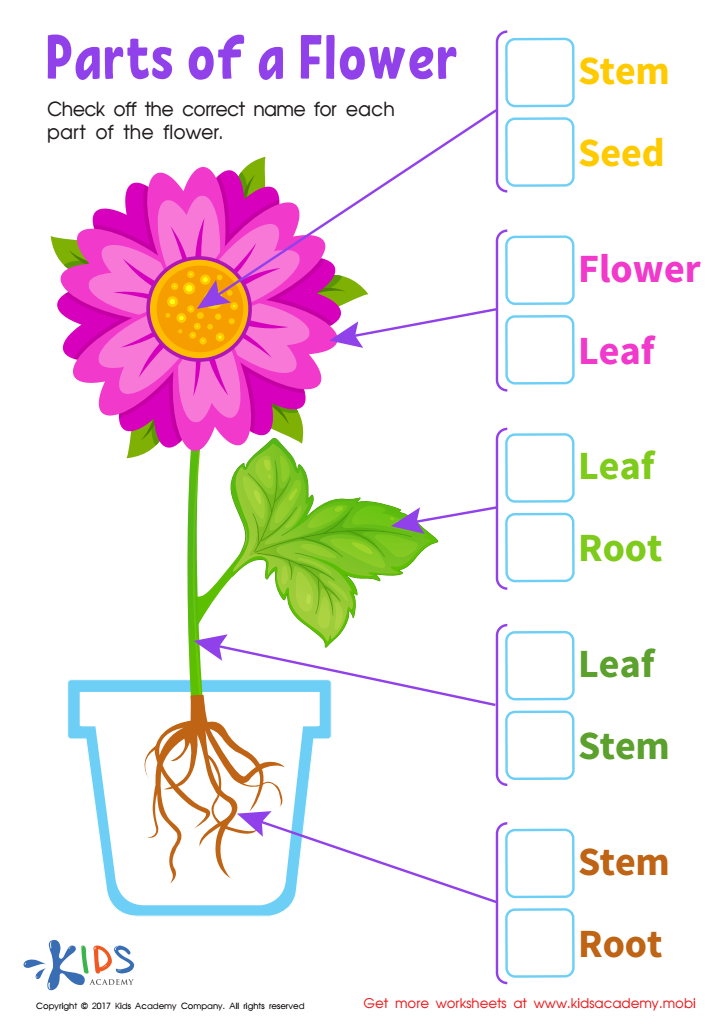Life Science Worksheets for Ages 3-6
3 filtered results
-
From - To
Explore our engaging Life Science Worksheets designed specifically for children ages 3-6! These thoughtfully crafted resources help young learners discover the wonders of the natural world, from plants and animals to ecosystems. Our worksheets are filled with fun activities like coloring, tracing, and matching, making science both enjoyable and educational. Each worksheet aims to spark curiosity, develop critical thinking, and enhance fine motor skills in early learners. Perfect for home or classroom use, these life science activities nurture a love for learning about nature and inspire the next generation of scientists. Start your child's scientific journey today!


Parts Flower Printable


Herbivores Printable


Carnivores Worksheet
Life science is a crucial component of early childhood education for children ages 3-6, as it serves as a foundation for their understanding of the world around them. Introducing young learners to concepts of life science fosters curiosity and nurtures a sense of wonder, encouraging them to explore nature and understand living organisms, including plants, animals, and ecosystems. This early exploration supports cognitive development by promoting critical thinking skills, observation, and inquiry.
Teachers and parents should care about life science because it enriches children's learning experiences and instills a sense of stewardship for the environment. When children engage with nature, they develop a deep appreciation for biodiversity and animal habitats, laying the groundwork for responsible citizenship and environmental awareness in later life.
Moreover, life science can enhance social and emotional development; children learn to work collaboratively during group activities and gain respect for all living things, fostering empathy.
By integrating life science into early education, teachers and parents help cultivate scientifically literate individuals who can make informed decisions. In summary, prioritizing life science for young learners encourages holistic growth, equipping them with essential skills and values that benefit both individuals and society as a whole.
 Assign to My Students
Assign to My Students



















